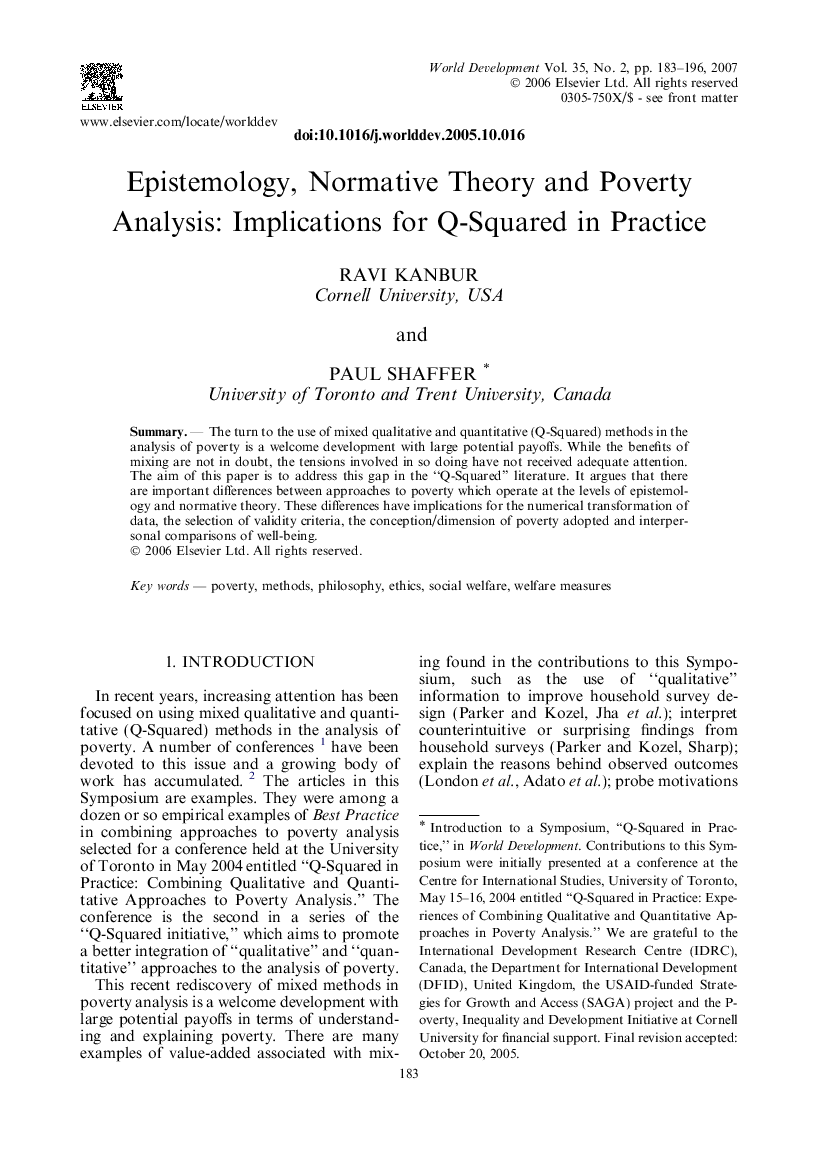| Article ID | Journal | Published Year | Pages | File Type |
|---|---|---|---|---|
| 991830 | World Development | 2007 | 14 Pages |
Abstract
SummaryThe turn to the use of mixed qualitative and quantitative (Q-Squared) methods in the analysis of poverty is a welcome development with large potential payoffs. While the benefits of mixing are not in doubt, the tensions involved in so doing have not received adequate attention. The aim of this paper is to address this gap in the “Q-Squared” literature. It argues that there are important differences between approaches to poverty which operate at the levels of epistemology and normative theory. These differences have implications for the numerical transformation of data, the selection of validity criteria, the conception/dimension of poverty adopted and interpersonal comparisons of well-being.
Related Topics
Social Sciences and Humanities
Economics, Econometrics and Finance
Economics and Econometrics
Authors
Ravi Kanbur, Paul Shaffer,
